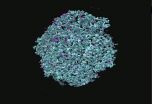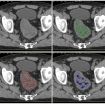The Trojan Horse burger: Do companies that 'do good' sell unhealthy food?
2014-11-11
(Press-News.org) When consumers see a company performing good deeds, they often assume that the company's products are healthy. According to a new study in the Journal of Public Policy & Marketing this may be far from true, and the company's socially responsible behavior may be creating a "health halo" over unhealthy foods.
"Research demonstrates that consumers frequently engage in inference making when evaluating food products. These inferences can be highly inaccurate, leading to unintended, unhealthy consumer choices," write authors John Peloza (University of Kentucky), Christine Ye (Westminster College) and William J. Montford (Florida State University).
The authors asked study participants to make assumptions about the healthiness of a future granola bar product. The people who were told that the granola bar company had won many awards for its public service predicted that the granola bar would therefore be extremely healthy.
The authors found that this "health halo" encouraged overconsumption and underestimation of calories consumed, adding that the current study could lead to important changes in advertising regulations--for example, limiting how much information about its social programs a company may include on its food packaging.
The authors believe that studies like these may help raise awareness among those consumers who genuinely want a healthy product, and who don't want their emotions manipulated in ways that lead them to make unhealthy as¬sumptions about food quality.
The study concludes with a warning: "If consumers seeking a healthy diet inaccurately estimate nutritional content of products marketed by firms with strong reputations for corporate social responsibility, it can lead to serious health consequences for both individuals and society."
INFORMATION:
John Peloza, Christine Ye, and William J. Montford. "When Companies Do Good, Are Their Products Good for You?" Forthcoming in the Journal of Public Policy & Marketing. For more information, contact John Peloza (john.peloza@uky.edu).
ELSE PRESS RELEASES FROM THIS DATE:
2014-11-11
A novel method of altering a protein in milk to bind with an antiretroviral drug promises to greatly improve treatment for infants and young children suffering from HIV/AIDS, according to a researcher in Penn State's College of Agricultural Sciences.
That's critical because an estimated 3.4 million children are living with HIV/AIDS, the World Health Organization reports, and nine out of 10 of them live in resource-limited countries in sub-Saharan Africa, where effective antiretroviral treatments still are not widely accessible or available. International medical experts ...
2014-11-11
Enterotoxigenic Escherichia coli (ETEC) bacteria are responsible each year for around 400 million cases of diarrhoea and 400,000 deaths in the world's low- and middle-income countries. Children under the age of five are most affected.
ETEC bacteria also cause diarrhoea in nearly one in two travellers to these areas.
Major breakthrough
Researchers at the University of Gothenburg's Sahlgrenska Academy are world leaders in research into ETEC and have now made a major breakthrough in collaboration with colleagues from the Wellcome Trust Sanger Institute in the UK, Karolinska ...
2014-11-11
As football players are learning, a violent blow to the head has the potential to cause mild to severe traumatic brain injury -- physical damage to the brain that can be debilitating, even fatal. The long-term effects run the gamut of human functioning, from trouble communicating to extensive cognitive and behavioral deterioration. To date, there is no effective medical or cognitive treatment for patients with traumatic brain injuries.
But a new study from Tel Aviv University researchers points to an "enriched environment" -- specially enhanced surroundings -- as a promising ...
2014-11-11
Technology developed at the University of Sussex helps hospitals make earlier and more accurate treatment decisions and survival assessments for patients with bowel cancer.
Bowel cancer kills more than 16,000 people a year in the UK, making it the nation's second-most common cause of cancer death (after lung cancer).
A novel medical-imaging technology, TexRAD, which analyses the texture of tumours, has been shown in trials to enable early diagnosis of those bowel-cancer patients not responding to the standard cancer therapy better than other available tumour markers. ...
2014-11-11
Changes to China's drink driving laws are catching the community off guard with more than 70 per cent of people unaware of the blood alcohol limits that could see them face criminal charges, according to new Queensland University of Technology (QUT) research conducted in two Chinese cities.
QUT's Centre for Accident Research & Road Safety - Queensland (CARRS-Q) has partnered with organisations in China to promote road safety and reduce fatalities and injuries, as alcohol-related driving offences are being brought into sharper focus because of the country's rapid motorisation ...
2014-11-11
A new climate change modeling tool developed by scientists at Indiana University, Princeton University and the National Oceanographic and Atmospheric Administration finds that carbon dioxide removal from the atmosphere owing to greater plant growth from rising CO2 levels will be partially offset by changes in the activity of soil microbes that derive their energy from plant root growth.
Soils hold more carbon than all of the earth's plant biomass and atmosphere combined. The new work published by Benjamin N. Sulman, a postdoctoral researcher in the lab of co-author and ...
2014-11-11
INDIANAPOLIS -- A new treatment regimen for hepatitis C, the most common cause of liver cancer and transplantation, has produced results that will transform treatment protocols for transplant patients, according to research published online today in the New England Journal of Medicine.
The investigational three-drug regimen, which produced hepatitis C cure rates of 97 percent, is an oral interferon-free therapy. Previously, the typical treatment for hepatitis C after a liver transplant was an interferon-based therapy, usually given for 48 weeks. It had a much lower response ...
2014-11-11
Lead researcher, Dr Sarah Dunstan from the Nossal Institute of Global Health at the University of Melbourne said the study is the first large-scale, unbiased search for human genes that affect a person's risk of typhoid.
Enteric fever, or typhoid fever as it more commonly known, is a considerable health burden to lower-income countries.
This finding is important because this natural resistance represents one of the largest human gene effects on an infectious disease.
"We screened the human genome to look for genes associated with susceptibility to, or resistance ...
2014-11-11
Weeds in the UK are still evolving hundreds of years after their introduction and are unlikely to have yet reached their full potential as invaders, UNSW Australia scientists have discovered.
The study is the first to have tracked the physical evolution of introduced plant species from the beginning of their invasion to the present day, and was made possible by the centuries-old British tradition of storing plant specimens in herbaria.
The research team, led by Habacuc Flores-Moreno, looked at three common weeds - Oxford ragwort, winter speedwell and a willow herb - which ...
2014-11-11
A controversial medication used by breastfeeding women should not be restricted because of the benefits it offers mothers and their babies, according to researchers at the University of Adelaide.
The medication domperidone has recently been the subject of warnings from the European Medicines Agency based on research that there is a link between the medication and fatal heart conditions.
Domperidone has been banned in the United States for years because of fatal cardiac arrhythmias among cancer patients who had been prescribed the drug to prevent nausea and vomiting.
However, ...
LAST 30 PRESS RELEASES:
[Press-News.org] The Trojan Horse burger: Do companies that 'do good' sell unhealthy food?






